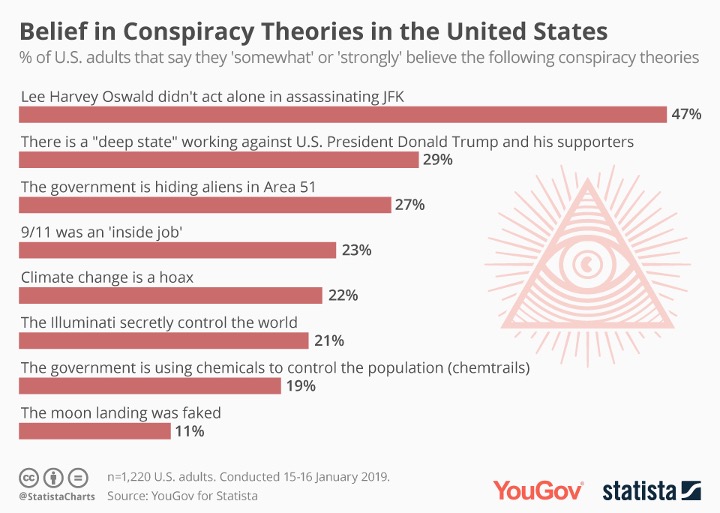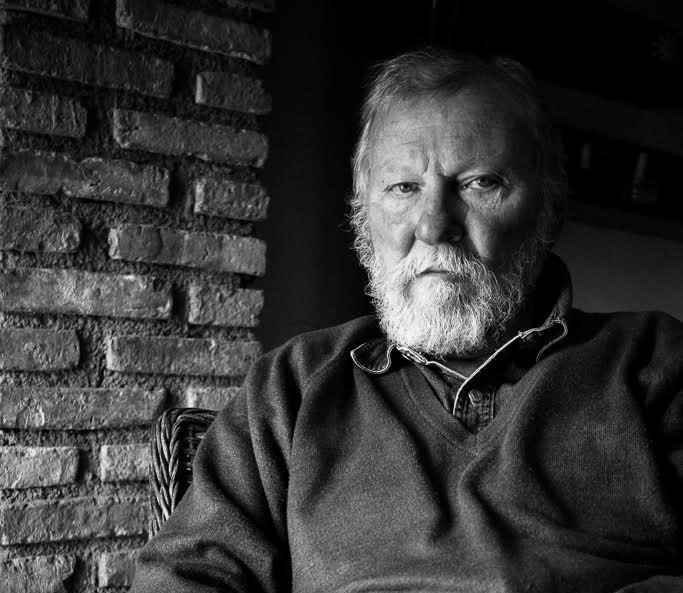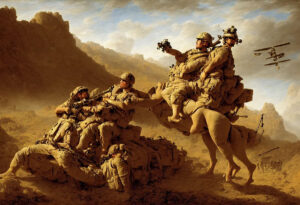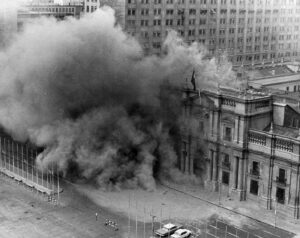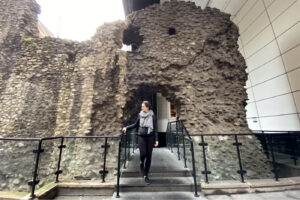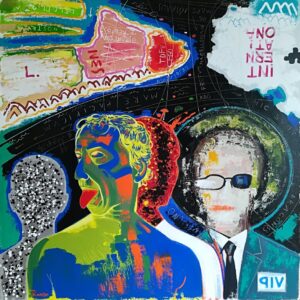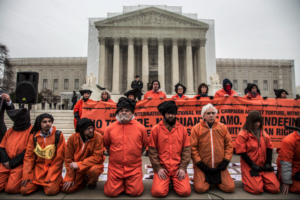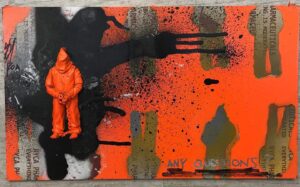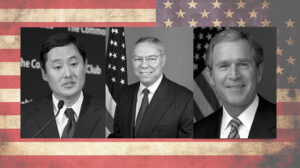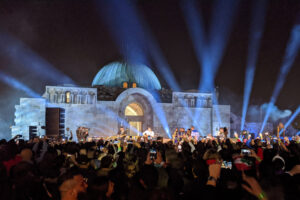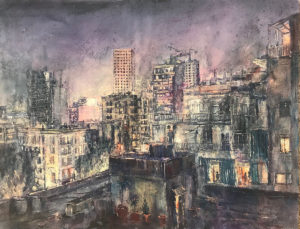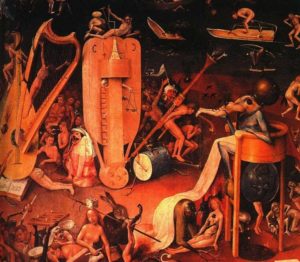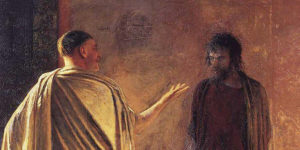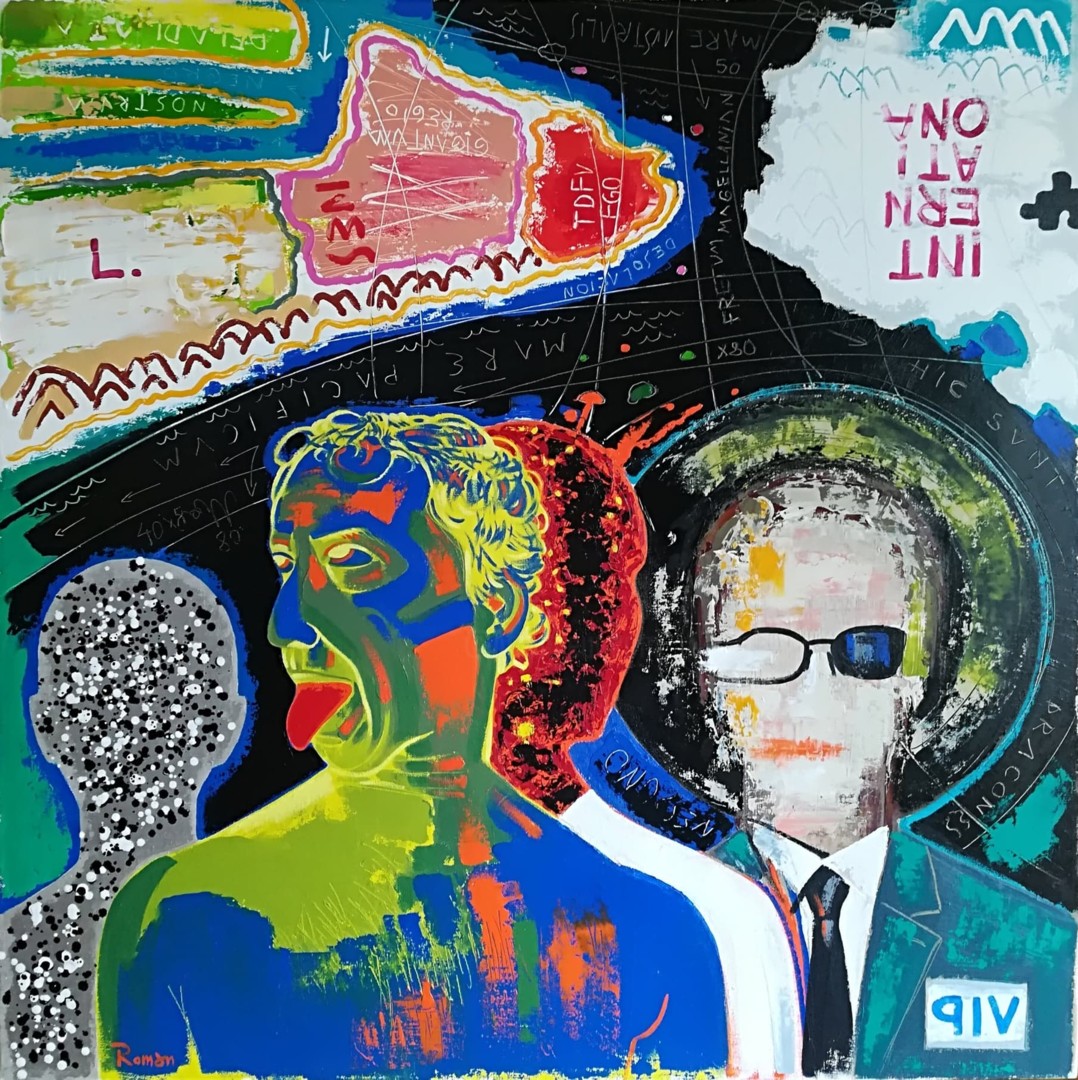
Truth and Untruth Lurking in Plain Sight
Muamarrat are ubiquitous in the Arab world—there are so many conspiracy theories, for instance, about Syria’s civil war, the gas attacks, ISIS, Israel and the CIA, it’s enough to drive anyone crazy — so many versions of “the truth.” In this column, expat observer Mike Booth mines the various hidden forces and catastrophes inherent in conspiracies in the context of the United States.
Mike Booth
“Oh, him, he’s an anti-vaxxer, a dangerous crazy. Don’t pay any attention to what he says. The 9/11 Truth Movement? Them too. They’re all conspiracy theorists.”
Well, not exactly. These are the two contrasting examples cited by Jaron Harambam, the Netherlands sociologist whose specialty is studying the subject of conspiracy theories and who argues in his recent book, Contemporary Conspiracy Culture: Truth and Knowledge in an Era of Epistemic Instability, that “we need to focus on the meaning, diversity and context of different conspiracy theories, as well as the people who subscribe to them.”
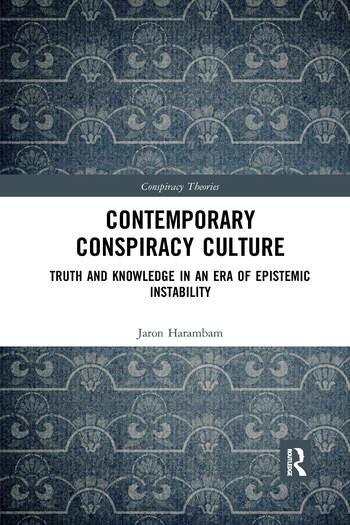 That seems to make sense, but how do we distinguish one from the other? That is the problem often posed by controversial affirmations on vital subjects. But is it enough to dismiss questionable truths by merely pasting a “conspiracy theory” label on them without taking a deeper look? That seems to be the default reaction in the United States. If something is true, but is uncomfortable for important people or institutions, the most expedient way to deal with it is by heaping it with ridicule and denial until it fades out of sight. This procedure requires no research, no independent investigations, nor public debate, and it’s free. Who could ask for a more perfect method for curtailing debate and cloaking the truth?
That seems to make sense, but how do we distinguish one from the other? That is the problem often posed by controversial affirmations on vital subjects. But is it enough to dismiss questionable truths by merely pasting a “conspiracy theory” label on them without taking a deeper look? That seems to be the default reaction in the United States. If something is true, but is uncomfortable for important people or institutions, the most expedient way to deal with it is by heaping it with ridicule and denial until it fades out of sight. This procedure requires no research, no independent investigations, nor public debate, and it’s free. Who could ask for a more perfect method for curtailing debate and cloaking the truth?
Which is emphatically not to say that all “conspiracy theories” are baseless. Far from it — but when they all get lumped together in the same trick bag, it’s hard to tell them apart. How do you manage that? You do your homework. You read, compare versions of events, evaluate the sources, and weigh the probabilities. Then you make a considered decision based on all the facts you can muster. Yes, it can be work, but it is the most reliable way of getting to the truth. Admittedly, many conspiracy theories may not stand up to the truth. But, to the dismay of some important people, organizations and institutions, some will.
Harambam charcacterizes the 9/11 Truth Movement as “rather different, people who challenge the mainstream narrative of 9/11 with completely factual and scientific evidence.” He adds, “These activists profess knowledge of physics, construction and explosives, and ground their legitimacy in expertise. Harambam concludes, “Conspiracy theories are not uniform, nor should our engagements with them be.”
Kennedy Deserves Better
Another historic case that belongs alongside the 9/11 Truth Movement for plausibility, after about a half century of rich and varied independent investigation, is that of President John F. Kennedy’s assassination. I’m not sure if anyone is prepared to make a firm accusation in the matter, in terms of whodunit, but it should at least be freely aired. That has not happened, and doesn’t look about to. The case carries an additional factor that serves to intensify the smell of conspiracy: government collusion in efforts to occlude evidence relevant to the case. What possible explanation can there be for that, aside from blatant malfeasance?
Yes, there was a hurried and slipshod official investigation, headed by Chief Justice Earl Warren of the Supreme Court, a pillar of American judicial honesty. But it was neither thorough nor convincing. That brings up another question: can government authorities be trusted to excavate the truth, the whole truth, and nothing but — or are there some questions of security, diplomacy, or loyalty to be protected at the same time? Justice Warren was a close friend of the Kennedy family, and his personal attachment may have interfered with his duties to the Commission. In one of the most infamous episodes of the investigation, Warren denied his fellow Commission members access to Kennedy’s autopsy photos because he deemed them “too disturbing.” I.F. Stone, the great American independent journalist, is quoted as saying, “If you can only remember two things, remember this: ‘Governments lie’. If you can remember three, remember, ‘All governments lie.'”
What is truly remarkable in these cases in the United States is the extent to which a massive majority of citizens would rather not bother looking into so many vital issues, preferring to consign them to “conspiracy-theory” limbo. A quick Google search on the term will show you just how the playing field is tilted in favor of discrediting virtually everyone who proposes a seemingly questionable or controversial theory. Almost all the Google articles are derogatory and refer more to “conspiracy theory subcultures” than to the questions at hand, as if anyone who subscribes to any conspiracy theory were an idiot. It’s not clear whether this inability to distinguish between fact and fiction is due to laziness or devious intentions. Coincidentally, almost none of the writers offer much evidence to sustain their affirmations. They don’t have to. Just labeling the issue a “conspiracy theory” will satisfy the mostly bovine critical sense out there. One thing is certain. The Kennedy case will not be closed until all those papers are released.
Personal Favorites
While we’re on the subject of government intervention, maybe it’s time to drop one of my favorite conspiracy theories. Isn’t it at least possible that it was one of America’s all-powerful “intelligence” agencies that got the conspiracy-theory ball rolling? If they didn’t, they should have, judging by the wholesale confusion caused by the onslaught of “conspiracy theories” throughout the American population. That forms part of a couple of the spooks’ core skills: propaganda and thought control. What a wonderful, spacious, dark bin in which to tip the government’s dirty laundry, the larger part of which belongs to the intelligence community, itself. All the black ops, all the false flags, the regime change, the surveillance at home and abroad… It might have something to do with them being secret and therefore somehow armored. Never mind. They were most likely just following orders. They’re cleancut American boys. They wouldn’t be involved in anything unchristian. Would they?
At bottom, though the Americans think they’re doing themselves a favor with the conspiracy-theories gambit, in reality they’re just adding liabilities to their assets. Too many people worldwide have done their homework on “theories” like Kennedy and 9/11, just to mention the most egregious cases, and are no longer hoodwinked by slick propaganda maneuvers. At the very minimum it’s clear by now that the Americans cannot be trusted. Just look at Russia’s situation today, hemmed in along their entire western border by NATO military bases and missiles, with the Americans baying for more in Ukraine. This, after American Secretary of State, James Baker, on February 9, 1990, famously assured Soviet leader, Mikhail Gorbachev, that NATO wouldn’t move “one inch closer” to Russia. The occasion of that promise, which was repeated several times during the proceedings, was the negotiations over the re-unification of Germany.
The next news we had on that, admittedly verbal, agreement — something that in Russian culture is to be rigorously honored — was when the Americans welched on it, alleging that it wasn’t in writing and it was made with the Soviet Union, not Russia. It’s almost as if an American Secretary of State’s word were not his bond. (See the full story here.) One wonders how many world leaders will find such a maneuver despicable. And how many of them will forget it? I don’t think that sort of forgetfulness abounds at the top of world governments, at least those that matter.
It All Boils Down to Demanding Standards for Distinguishing Truth from Lies
Permit me to suggest a few. Let’s start with motive. Does the perpetrator or the denier of a given conspiracy theory have something to gain from it? Money, fame, re-election, satisfaction of misplaced patriotism, market share, favor swaps, fraudulent geopolitical clout, or just another piece in the wall?
Then there’s the means. Lee Harvey Oswald’s rickety old 6.5 × 52mm Carcano Model0 91 infantry carbine, produced in Italy from 1891-1943 and purchased by Oswald by mail order, was not the ideal tool for such a high-priority job. It was wholly out of character. In the reenactment of the crime, government sharpshooters were unable to match Oswald’s marksmanship. If he had not been expeditiously murdered the morning after the event, Oswald might have been able to explain this and other key aspects of the assassination.
What about the positive identification of the perpetrator? That is fundamental; without it no jury will convict. And Oswald was not positively identified as the killer. Could that be why he had to succumb to mayhem the following morning, to dispel all doubts?
What about opportunity? Is the interested party in a position to plant or debunk a conspiracy theory? Is he or she well placed in the media, the government or the military-industrial complex? Those are the big three, and the juiciest CTs usually refer to one or another of them. Do they enjoy deserved or undeserved credibility? In the Kennedy case, the sterling reputation of US Supreme Court Chief Justice, Earl Warren, still blocks the path of truth seekers 59 years later. Such was Warren’s prestige as a person and the highest judge in the land that few people in Washington or anywhere else in the country dared to challenge his impeccable honesty.
With the passage of time, however, and new evidence that has come to light, the Kennedy assassination bears fresh assessment. The History Channel published an article with nine reasons for taking another look at the case.
Here are a few of them:
• Warren’s doubts about the case against Oswald led him to turn down the opportunity to chair the commission multiple times, until President Johnson argued that an inadequate report could incite a public panic and even spark a nuclear war.
• While serving as a leading member of the Warren Commission, future President Gerald Ford also acted as an inside informant for J. Edgar Hoover and the FBI. Among Ford’s many leaks was the revelation that two unnamed members of the Commission—most likely Richard Russell and Hale Boggs—remained unconvinced that the kill shot had been fired from the Texas School Book Depository.
• The FBI and the CIA had monitored Lee Harvey Oswald in the months before the assassination, but both agencies later tried to downplay their knowledge of him to the Warren Commission.
• When the Warren Report was first released to the public in September 1964, polls showed that only 56 percent of Americans agreed with its “lone gunman theory.” By 1966, a second poll would show that only 36 percent of people still had confidence in the report. Today, studies show that around two-thirds of Americans believe in some form of conspiracy surrounding the assassination. (Source: History.com)
Other Causes for Concern
A couple of years ago I wrote a two-part article about the USS Liberty case. I called it “USS Liberty–Crew Murdered by Israel, Betrayed by Their Commander in Chief.” My main source was a book, Assault on the Liberty, published by James M. Ennes, Jr., one of the sailor victims of the gratuitous Israeli Navy and Air Force attack on a United States signals intelligence ship.
Israel and the U.S. were then, as now, intimate allies. If the Liberty case did not become one of the most flagrant conspiracy theories of the last century, it’s only because it was so artfully covered up. That coverup was essential to protect President Lyndon Johnson’s upcoming reelection campaign which, in the end, never materialized, anyway. He was pre-defeated by the anti-Vietnam-War movement.
There are other outrages that were so flagrant that there was no way the American government could cover them up, so they just brazened them out. How, for example, did all of the most “important” Saudi citizens get evacuated back home on charter planes on the day after 15 of their compatriots had directly participated in the 9/11 attacks? It was a day, we must recall, that all US flights were grounded due to the emergency. How is it possible that they were not even interrogated? Thousands of Americans were murdered. The attackers blew a big hole in the Pentagon. The fucking Pentagon! What was the hurry on the occasion of the most important attack on America since Pearl Harbor? Why was President George W. Bush, the great friend of the Saudis, his fellow oil magnates, not called to account? Would that not seem appropriate in the world’s greatest democracy?
So much slime. So little time.



